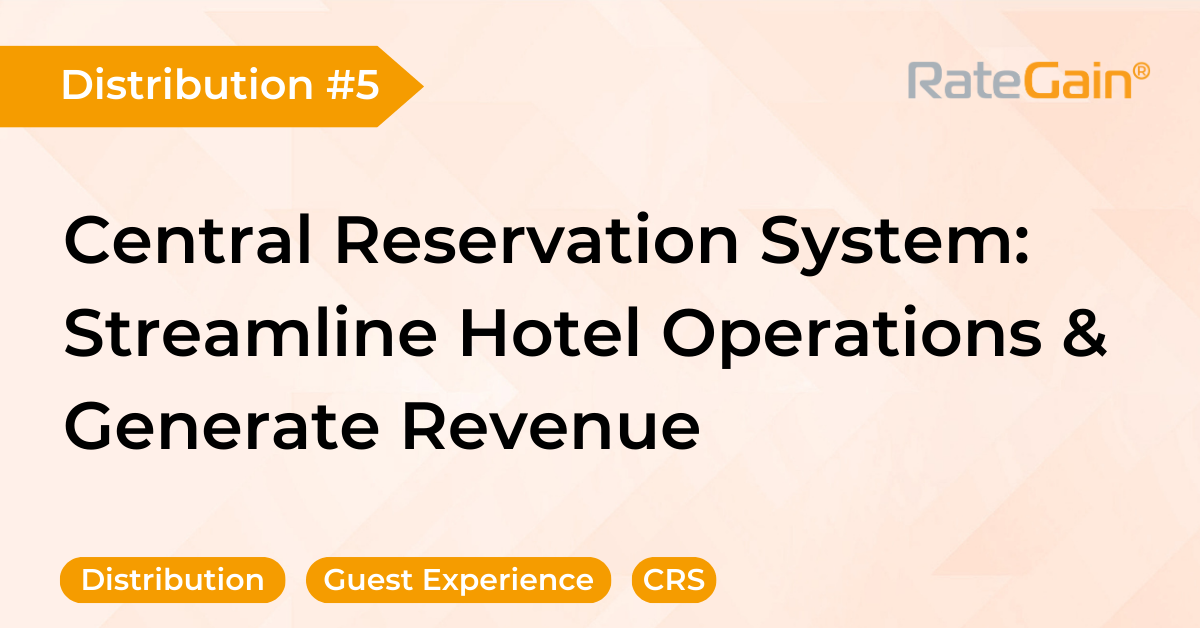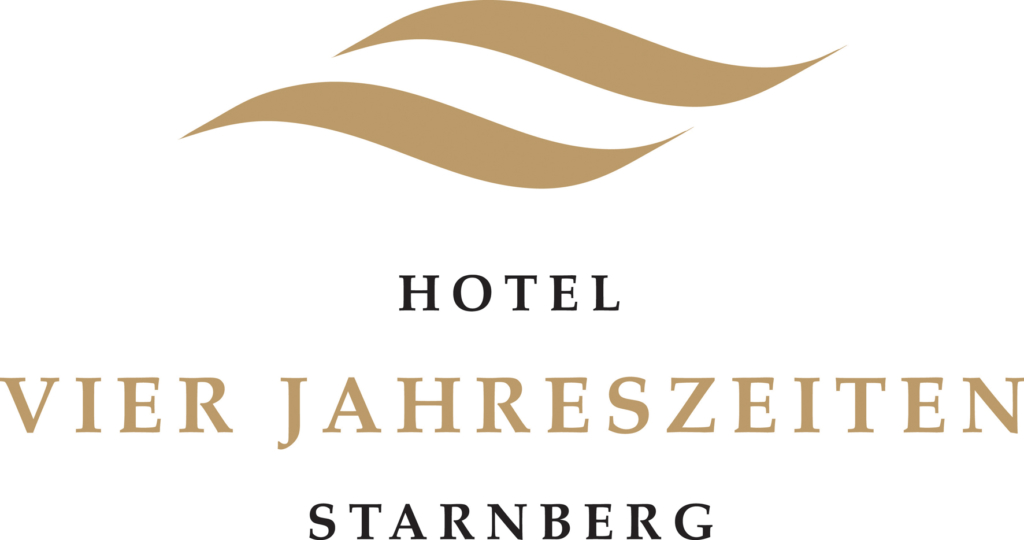In the ever-evolving landscape of the hospitality industry, where every reservation, rate, and availability holds immense value, there exists a silent hero orchestrating the seamless flow of operations. That hero is the Central Reservation System (CRS), an innovative technology that empowers hotels to take control of their distribution, maximize revenue, and create unforgettable guest experiences.
Imagine a world where hotels can effortlessly manage their inventory, rates, and reservations in real-time, streamline connectivity with distribution partners, and gain valuable insights through robust reporting capabilities. The CRS is the driving force behind this hotel revolution, revolutionizing the way properties operate and thrive in a highly competitive market.
Join us as we dive into the realm of hotel CRS, unraveling its significance, uncovering its features, and exploring how it shapes the success of modern hoteliers.
What is a Hotel CRS?
A Hotel Central Reservation System (CRS) is a software platform that allows hotels to manage their inventory, rates, and reservations in a centralized manner. It serves as a robust and comprehensive solution for hotels to streamline their operations and improve their overall efficiency.
A Hotel CRS acts as a single point of control for managing room availability, rates, and reservations across multiple distribution channels, including the hotel’s own website, online travel agencies (OTAs), global distribution systems (GDS), and other booking platforms.
Origins of a Hotel Central Reservation System
The concept of a Hotel CRS dates back to the 1970s when the hospitality industry began adopting computerized reservation systems. These early systems were primarily used by airlines to manage seat inventory. Over time, hotel chains started developing their own reservation systems to manage their properties more efficiently.
The emergence of the internet in the late 20th century further revolutionized the hotel distribution landscape. Hotel CRS systems evolved to incorporate online reservations, allowing guests to book directly through hotel websites. This marked a significant shift in the way hotels managed their inventory and interacted with customers.
Why do Hotels Need a Hotel CRS?
In today’s digital era, the hotel distribution landscape has become increasingly complex. Hotels need to effectively manage their room inventory, rates, and reservations while catering to the demands of tech-savvy travelers. A Hotel CRS offers several key benefits for hotels:
-
- Efficient Inventory Management: A Hotel CRS provides a centralized platform to manage room inventory, ensuring real-time updates and accurate availability information across all distribution channels.
- Dynamic Rate Management: With a Hotel CRS, hotels can implement dynamic pricing strategies based on factors such as demand, seasonality, and market conditions. This helps maximize revenue and adapt to changing market dynamics.
- Seamless Distribution: A Hotel CRS integrates with multiple channels, enabling hotels to distribute their inventory across OTAs, GDSs, metasearch engines, and direct booking channels. This broadens the hotel’s reach and visibility.
Read More: Difference Between a Hotel PMS, Channel Manager, OTAs, and Booking Engine
- Enhanced Guest Experience: A Hotel CRS allows for personalized offerings, such as targeted promotions, room upgrades, and tailored packages. It enables smooth and convenient booking experiences, leading to increased guest satisfaction.
- Comprehensive Reporting and Analytics: A Hotel CRS provides in-depth reporting and analytics capabilities, offering insights into occupancy, revenue, channel performance, and guest behavior. This data helps in making informed business decisions.
Disadvantages of Not Having a CRS for Your Hotel
Not having a Hotel CRS can pose several challenges for hotels:
- Manual Processes and Errors: Without a Hotel CRS, hotels may rely on manual processes for managing inventory and reservations, leading to potential errors, overbookings, or missed revenue opportunities.
- Limited Distribution Channels: Hotels without a CRS may face difficulties in distributing their inventory across multiple channels, limiting their reach and exposure to potential guests.
- Inefficient Rate Management: Without a Hotel CRS, hotels may struggle to implement dynamic pricing strategies and efficiently manage rates across various channels, potentially resulting in revenue loss or rate discrepancies.
- Lack of Real-Time Updates: Manual processes may result in delays in updating room availability, rates, and restrictions across channels, leading to customer dissatisfaction and lost bookings.
- Limited Reporting and Insights: Without a Hotel CRS, hotels may lack access to comprehensive reporting and analytics, making it challenging to evaluate performance, identify trends, and make data-driven decisions.
PMS, CRS, Channel Manager, and Booking Engine: How are they Different?
While a Hotel CRS is a central component of a hotel’s technology infrastructure, it is essential to understand its relationship with other key systems, including Property Management Systems (PMS), Channel Managers, and Booking Engines.
-
Property Management System (PMS)
A PMS focuses on managing day-to-day hotel operations, such as guest check-in/check-out, housekeeping, billing, and front desk management. It acts as the operational hub of a hotel and handles internal processes. Integration between a Hotel CRS and PMS enables seamless communication and data synchronization.
-
Channel Manager
A Channel Manager allows hotels to distribute their inventory across various online channels, such as OTAs and GDSs, while ensuring consistent availability and rates. It connects the Hotel CRS with external distribution channels, facilitating real-time updates and inventory control.
-
Booking Engine
A Booking Engine is a software application integrated into a hotel’s website that enables guests to make direct bookings. It provides a user-friendly interface, allowing guests to search for availability, view rates, and complete the booking process. A Hotel CRS integrates with the Booking Engine to ensure real-time availability and instant confirmation of bookings.
The integration between these systems ensures seamless data flow, real-time updates, and eliminates manual data entry, enabling hotels to efficiently manage their inventory, rates, and reservations across multiple channels.
How is a Hotel Central Reservation System involved in the Search and Booking Process?
The hotel search and booking process typically involves the following steps:
- Search: Potential guests search for accommodations using search engines, travel websites, or OTAs. They specify their desired location, dates, and preferences.
- Availability Check: The Hotel CRS receives the search request and checks the availability of rooms for the specified dates and criteria. It provides real-time information on room availability, rates, and restrictions.
- Rate Comparison: Guests compare rates and offerings across different hotels and channels. The Hotel CRS ensures that the rates displayed are consistent across all distribution channels to maintain rate parity.
- Reservation Request: After selecting a hotel and desired room type, guests proceed to make a reservation. The Hotel CRS handles the reservation request, checks for room availability, and confirms the booking in real-time.
- Confirmation and Payment: Once the reservation is confirmed, the Hotel CRS generates a confirmation email or booking voucher. Guests can proceed with the payment process, which can be done either online or at the hotel upon arrival.
- Post-Booking Management: The Hotel CRS updates the inventory in real-time, ensuring that the room availability is accurately reflected across all channels. It also manages modifications, cancellations, and other post-booking processes.
Major Hotel Central Reservation System Providers
The market offers a range of Hotel CRS software providers, each with their own unique features and capabilities. Some prominent CRS providers include:
-
Sirius (Idiso)
Sirius is a hotel Central Reservation System (CRS) developed by Idiso, a global hospitality technology provider. The Sirius CRS offers hotels advanced functionalities for managing rates, inventory, and reservations. It enables seamless connectivity with distribution channels, real-time updates, and robust reporting and analytics capabilities.
-
BookLogic CRS
BookLogic CRS is a comprehensive Central Reservation System (CRS) designed for hotels and accommodation providers. It offers a range of features, including inventory management, rate optimization, and distribution across various channels. BookLogic CRS ensures real-time updates, integration with other systems, and detailed reporting capabilities.
-
Windsurfer (SHR)
Windsurfer is a Central Reservation System (CRS) developed by SHR, a leading provider of hotel distribution and revenue management solutions. Windsurfer CRS offers hotels a comprehensive platform to manage rates, availability, and reservations. It ensures seamless integration with distribution channels, real-time updates, and advanced reporting functionalities.
-
PVCP
PVCP, which stands for Pierre & Vacances Center Parcs, is a hospitality company that operates its own Central Reservation System (CRS). The PVCP CRS allows the company to efficiently manage inventory, rates, and reservations across its properties. It ensures real-time updates, seamless integration with distribution channels, and comprehensive reporting capabilities.
-
BusyRooms CRS
BusyRooms CRS is a Central Reservation System (CRS) designed for hotels and accommodation providers. The CRS offers features such as inventory management, rate optimization, and distribution across multiple channels. BusyRooms CRS ensures real-time updates, integration with other systems, and comprehensive reporting functionalities.
-
Synxis
Synxis is a Central Reservation System (CRS) provided by Sabre Hospitality Solutions. The Synxis CRS offers hotels a robust platform to manage rates, inventory, and reservations. It provides seamless connectivity with distribution channels, real-time updates, revenue management capabilities, and comprehensive reporting and analytics features.
-
Reconline CRS
Reconline CRS is a Central Reservation System (CRS) developed by Reconline, a hospitality technology company. The Reconline CRS enables hotels to efficiently manage rates, availability, and reservations across multiple channels. It offers seamless integration with distribution partners, real-time updates, and reporting functionalities.
-
Amadeus Hospitality
Amadeus Hospitality offers a robust CRS platform that allows hotels to optimize revenue through intelligent pricing and distribution strategies. It provides seamless integration with other Amadeus solutions, such as PMS and channel management.
-
Sabre Hospitality Solutions
Sabre Hospitality Solutions offers a powerful CRS platform that helps hotels streamline operations, maximize revenue, and enhance guest experiences. It integrates with various Sabre products and services for end-to-end hotel management.
-
Oracle Hospitality
Oracle Hospitality’s CRS system provides hotels with comprehensive tools for managing rates, inventory, and reservations. It offers seamless integration with other Oracle Hospitality solutions, including PMS and distribution management.
These CRS platforms cater to the unique needs of hotels, providing them with the tools and capabilities to effectively manage their operations, maximize revenue, and enhance guest experiences.
In addition to the above, some hotels have their in-house CRS systems. These include:
-
FabHotels
FabHotels is a hotel brand that operates its own Central Reservation System (CRS). Their CRS allows FabHotels to efficiently manage inventory, rates, and reservations across their properties. It ensures real-time updates, seamless integration with distribution channels, and comprehensive reporting capabilities.
-
H-Hotels
H-Hotels is a hotel group that has developed its own in-house Central Reservation System (CRS). The CRS enables H-Hotels to centralize and streamline their reservation processes, manage rates and availability, and distribute inventory across various channels. It provides real-time updates, integration with other systems, and reporting functionalities.
-
OYORooms
OYORooms, a leading hospitality brand, has its own in-house Central Reservation System (CRS). The CRS empowers OYORooms to efficiently manage their vast inventory, rates, and reservations. It ensures real-time availability updates, seamless integration with distribution partners, and comprehensive reporting features.
When selecting a Hotel CRS software provider, hotels should consider factors such as system functionality, scalability, ease of use, integration capabilities, customer support, and cost.
How to Select the Right CRS for Your Hotel
Choosing the right CRS for your hotel requires careful consideration of various factors:
- Assess Your Requirements: Identify your hotel’s specific needs and goals. Consider factors such as property size, target market, distribution channels, and desired functionalities.
- System Integration: Evaluate the CRS’s compatibility and integration capabilities with existing systems, such as PMS, channel managers, and booking engines. Seamless data flow and synchronization are essential for efficient operations.
- Scalability and Flexibility: Ensure that the CRS can accommodate your hotel’s future growth and expansion plans. It should be flexible enough to adapt to changing market demands and technologies.
- User-Friendliness: Consider the usability and interface of the CRS. It should be intuitive and easy for your staff to navigate, reducing training time and potential errors.
- Reporting and Analytics: Assess the reporting and analytics capabilities of the CRS. It should provide comprehensive insights into key performance metrics, enabling data-driven decision-making.
- Customer Support: Evaluate the level of customer support provided by the CRS vendor. Prompt and reliable support is crucial for resolving issues and ensuring smooth operations.
- Cost and Return on Investment (ROI): Consider the pricing structure and overall cost of the CRS, including implementation, training, and ongoing support. Assess the potential ROI based on the system’s features and benefits.
A Hotel CRS plays a pivotal role in streamlining hotel operations, optimizing revenue, and enhancing the guest experience. By centralizing inventory, rates, and reservations management, hotels can efficiently distribute their rooms, implement dynamic pricing strategies, and offer personalized experiences.
With the right CRS in place, hotels can stay ahead in the competitive hospitality landscape and achieve sustainable growth.
 Deutsch
Deutsch Português
Português Italiano
Italiano Espanol
Espanol čeština
čeština ไทย
ไทย Français
Français


